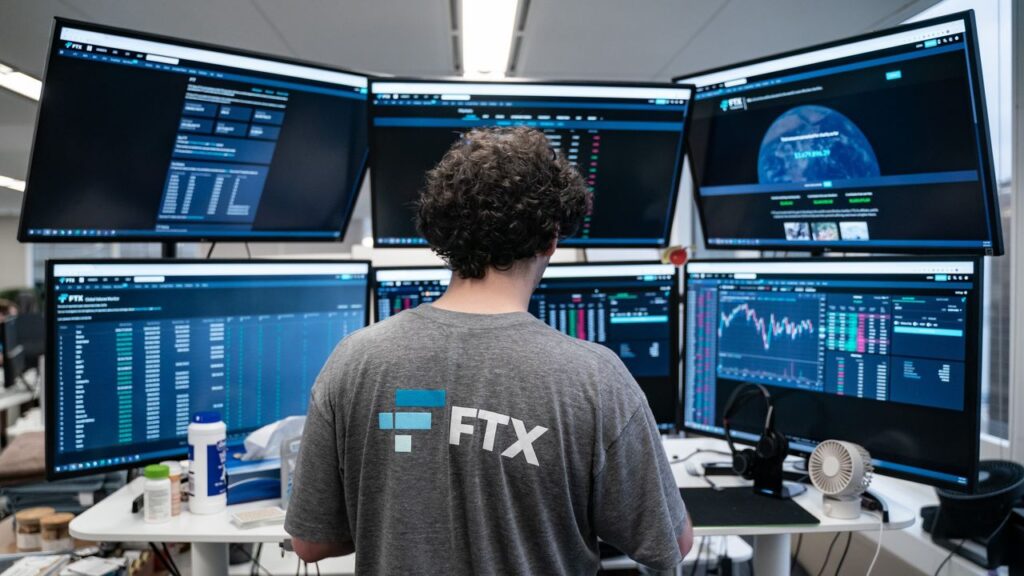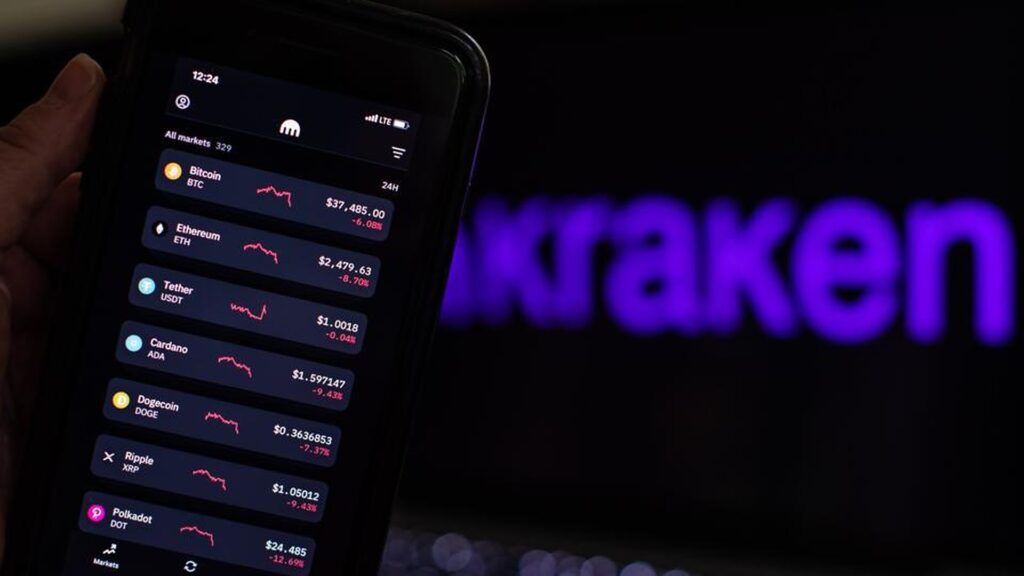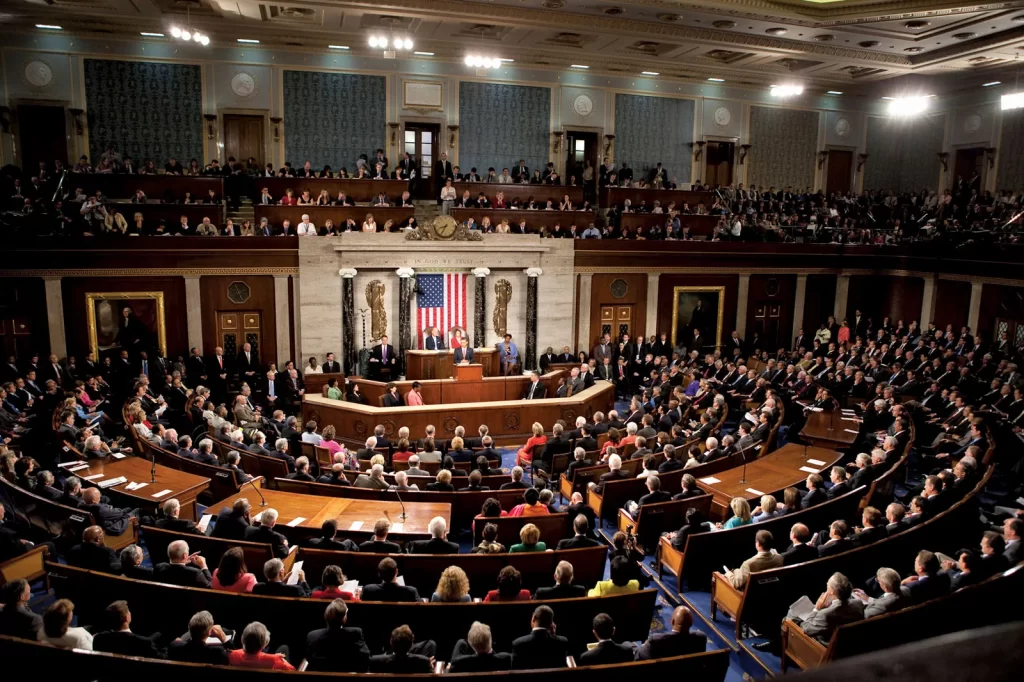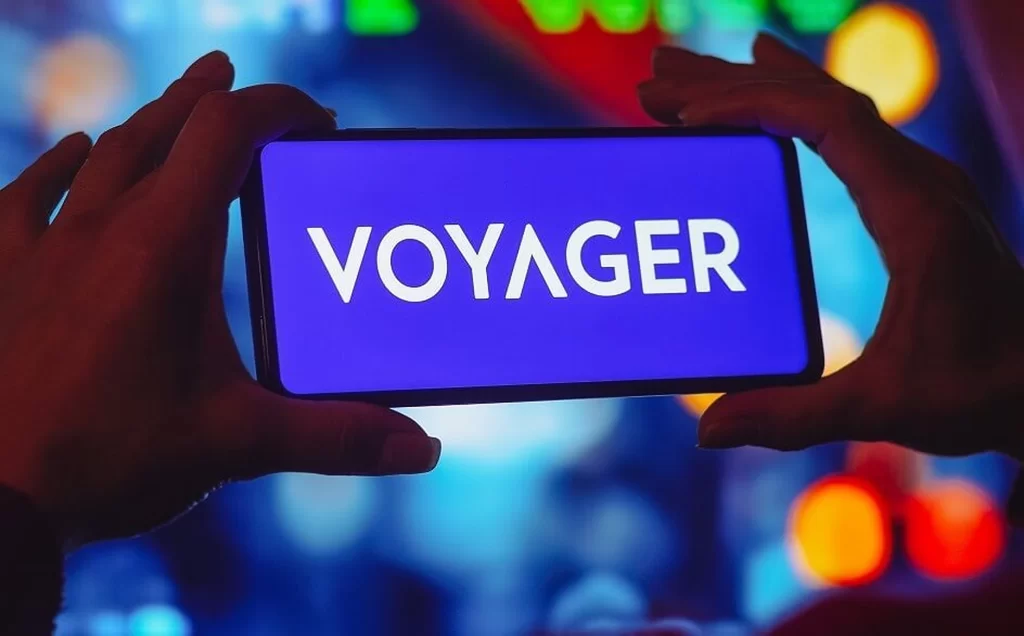The FTX debtors’ estate, under the leadership of CEO John Ray III, has submitted an application to sell Digital Custody to CoinList at a substantial reduction of $500,000, with funding provided by Digital Custody’s original CEO and seller, Terence Culver. FTX had originally acquired Digital Custody for $10 million.
As per FTX’s legal submission, the acquisition of Digital Custody was intended to provide custodial services for FTX US and LedgerX.
However, the integration of Digital Custody into the FTX ecosystem was incomplete when former CEO Sam Bankman-Fried filed for bankruptcy in November 2022, just three months after acquiring Digital Custody.
FTX had procured the company through two transactions of $5 million each in December 2021 and August 2022.
FTX has filed a motion to sell Digital Custody for $500,000, a significant markdown from the $10 million it was purchased for, to Terrence Culver, the individual who sold Digital Custody to FTX for $10 million.
A&M (UCC/Ad hoc agrees) says this reflects a fair price for the valuable license from South Dakota that allows it to provide custody.
FTX’s legal team also clarified that since FTX US hasn’t been restarted, Digital Custody holds little value for the estate.
It states, “DCI is no longer useful to the Debtors’ business, given the Debtors’ sale of LedgerX and that it is unlikely for the Debtors to sell or restart FTX U.S..”
Nonetheless, Digital Custody retains a custodial license from the South Dakota Division of Banking.
After assessing three offers, including one from Culver, the debtors opted for the superior offer, considering its ability to swiftly complete the sale and the favourable relationship with Culver, which is anticipated to expedite regulatory approval.
FTX’s legal team indicated that both the committee and the ad hoc committee of non-U.S. customers of FTX.com endorsed the transaction.
READ MORE: European Commission Proposes Mandate for Tech Platforms to Detect AI-Generated Content
However, as part of the agreement, FTX reserves the right to seek a better offer for Digital Custody until three days before the closure.
Failure by the buyer to finalise the deal will incur a reverse termination fee of $50,000.
The now-defunct cryptocurrency exchange FTX has clarified that its restructuring plans do not involve a relaunch of the company but are focused on fully reimbursing customers.
During a court hearing on January 31, FTX lawyer Andy Dietderich stressed that despite exhaustive efforts, there are no plans to revive FTX.
Prior to this, numerous FTX users petitioned a U.S. bankruptcy judge to prevent the collapsed crypto exchange from valuing their cryptocurrency deposits using 2022 prices, claiming that this approach deprived them of the recent surge in crypto prices.
Sunday, February 11th, marks the annual Super Bowl LVIII in the United States, and there’s intrigue within the crypto community regarding rumours of no crypto ads appearing this year, akin to 2023.
However, an executive of crypto exchange Kraken suggests that the event’s American-centric focus clashes with its global plans.
The now-defunct crypto exchange FTX stood out as a major advertiser during the 2022 Super Bowl, featuring comedian Larry David, just nine months before its collapse.
On February 1st, Cointelegraph reported that David regretted taking part in the FTX promotion, in which he encouraged viewers “not to miss out on the next big thing.”
“So, like an idiot, I did it,” David declared.
In a recent Fox Business report, Kraken’s chief marketing officer, Mayur Gupta, emphasised a transition in crypto advertising, moving away from generating hype toward educating the public about the potential of crypto for the future.
“If the last wave of crypto marketing was all about hype and FOMO [fear of missing out], this current wave has to be rooted in education and awareness for the substance and true value proposition of crypto as a movement that will bring financial freedom and inclusion.”
Furthermore, Gupta pointed out that the Super Bowl mainly caters to an American audience.
He anticipates that the next major wave of crypto users will come from locations worldwide, suggesting the exchange’s preference for events with a more global appeal.
“The Super Bowl is a very US-centric event, and the next wave of crypto users will come from all around the world, not just the United States,” he stated.
Meanwhile, Reuters recently reported that the US federal government is working to increase the global viewership of the Super Bowl this year.
READ MORE: Boosting Your Cryptocurrency’s Brand Before the 2024 Halving
The game will reportedly be broadcast in 190 countries, and the US State Department will help organise watch parties in 30 locations abroad.
According to data from Nielsen, the Super Bowl has reached over 100 million viewers every year since 2010.
There was speculation that with the United States Securities and Exchange Commission (SEC) approving 11 spot Bitcoin exchange-traded funds (ETFs) on January 10th, some asset management firms would consider advertising to the Super Bowl audience.
However, the world’s largest asset manager, BlackRock, reportedly has not secured any advertisement slots for its spot Bitcoin ETF product.
Another recently approved applicant, asset management firm VanEck, recently shared on X that seeing no crypto ads in this year’s Super Bowl will be a positive.
Cointelegraph recently reported that during Super Bowl LVII in 2023, the first game following bankruptcy filings from several crypto firms and a market downturn, crypto advertisements were absent.
According to Paul Hardart, a clinical professor of marketing for New York University’s Stern School of Business, “fun, humour and entertainment” will likely be the theme of ads for Super Bowl LVIII, in a “notable shift away” from artificial intelligence and crypto firms.
The United Nations (UN) is reportedly probing hacking groups linked to the Democratic People’s Republic of Korea (DPRK) for orchestrating cyberattacks on cryptocurrency firms over six years, amassing profits of approximately $3 billion.
As per a recent Reuters report citing unpublished UN documents, an independent sanction committee is overseeing the investigation into the DPRK-linked hacking groups.
The groups purportedly targeted 58 crypto-related firms to aid their weapon of mass destruction (WMD) development work between 2017 and 2023.
“The panel is investigating 58 suspected DPRK cyberattacks on cryptocurrency-related companies between 2017 and 2023, valued at approximately $3 billion, which reportedly help fund DPRK’s WMD development.”
The UN is reportedly expected to release a published report of its findings within the next two months.
In 2023, Chainalysis estimated that the hacking groups pilfered approximately £1 billion worth of crypto from 20 hacks.
READ MORE: FCC Outlaws AI-Generated Robocalls in US Following Surge of Fraudulent Voice Messages
However, there was a notable decrease compared with 2022, when crypto losses from North Korea-linked exploits totalled £1.7 billion across 15 hacking incidents.
Blockchain intelligence firm TRM Labs foresees that this year will witness even more significant damage from hacking groups, as their attack methods are anticipated to advance beyond those of previous years.
“Despite notable advancements in cybersecurity among exchanges and increased international collaboration in tracking and recovering stolen funds, 2024 is likely to see further disruption from the world’s most prolific cyber-thief.”
Meanwhile, Cointelegraph recently reported that the United Nations Office on Drugs and Crime has cautioned that crypto is being misused in illicit economies developing in East and Southeast Asia.
It highlighted poorly regulated or illicit casinos and “pig-butchering” romance scams that have witnessed major growth in the Mekong region.
The European Commission is set to mandate tech platforms such as TikTok, X, and Facebook to detect artificial intelligence (AI)-generated content, aiming to safeguard the upcoming European elections from misinformation.
In a move towards enhancing election security, the commission has launched a public consultation on proposed guidelines for very large online platforms (VLOPs) and very large online search engines (VLOSEs).
The recommendations seek to mitigate the democratic threats posed by generative AI and deepfakes.
Outlined in the draft guidelines are various measures to counter election-related risks, including specific strategies pertaining to generative AI content, pre- and post-election risk mitigation planning, and providing clear directives for European Parliament elections.
Generative AI has the potential to mislead voters and manipulate electoral processes by fabricating and circulating synthetic content that is inauthentic and misleading, including depictions of political figures, events, polls, and narratives.
The draft election security guidelines are presently open for public consultation in the European Union until March 7.
They advocate for alerting users on relevant platforms about potential inaccuracies in content generated by generative AI.
READ MORE: Dencun Upgrade Clears Final Testing Hurdle, Sets Stage for Ethereum Mainnet Deployment
According to the draft, the guidelines also propose directing users to authoritative information sources and advocate for tech giants to implement safeguards against the creation of misleading content that could significantly influence user behaviour.
Regarding AI-generated text, the current recommendation for VLOPs/VLOSEs is to “indicate, where possible, in the outputs generated the concrete sources of the information used as input data to enable users to verify the reliability and further contextualize the information.”
The proposed “best practices” for risk mitigation outlined in the draft guidance draw inspiration from the EU’s recently approved legislative proposal, the AI Act, and its non-binding counterpart, the AI Pact.
Concerns surrounding advanced AI systems, such as large language models, have escalated since the widespread adoption of generative AI in 2023, bringing tools like OpenAI’s ChatGPT into the spotlight.
While the commission has not specified the timeline for companies to label manipulated content under the EU’s content moderation law, the Digital Services Act, Meta announced plans in a company blog post to introduce fresh guidelines concerning AI-generated content on Facebook, Instagram, and Threads in the coming months.
Any content identified as AI-generated, whether through metadata or intentional watermarking, will be visibly labelled.
A cohort of five Republican lawmakers from the United States Senate have lambasted the Securities and Exchange Commission (SEC) for its handling of a lawsuit against Digital Licensing, trading as Debt Box.
In a missive dated February 7 addressed to SEC Chair Gary Gensler, six Republican senators articulated their “significant concerns” regarding the commission’s conduct in the Debt Box affair, contending that the regulator behaved in an “unethical and unprofessional manner.”
The SEC, in filings with the U.S. District Court for the District of Utah, Northern Division, acknowledged in December that it had failed to be “accurate and candid” in asserting that Debt Box shuttered bank accounts and intended to relocate to the United Arab Emirates.
“Whether Commission staff deliberately misrepresented evidence or unwittingly presented false information, this case raises questions about the integrity of other enforcement actions initiated by the Commission,” asserted the senators.
“It is challenging to sustain confidence that other cases are not based on questionable evidence, obfuscations, or outright misrepresentations.”
The six senators—JD Vance, Thom Tillis, Bill Hagerty, Cynthia Lummis, and Katie Boyd Britt—seemingly refrained from prescribing a specific course of action for the SEC going forward, merely voicing their apprehensions.
READ MORE: US Judge Approves Sealed Settlement Between BlockFi and 3AC in Crypto Dispute
They remarked that the SEC’s proposed remedy of mandatory staff training and personnel reshuffling may prove inadequate.
The SEC instigated legal proceedings against Debt Box in July 2023, alleging the company orchestrated an illicit $50 million cryptocurrency scheme.
The court, on the basis of the SEC’s assertions, sanctioned a temporary restraining order to immobilize Debt Box’s assets.
However, subsequent revelations disclosed numerous inaccuracies in the SEC’s claims, prompting the court to threaten sanctions and the commission to seek dismissal of the case.
It remains unclear whether the Republican senators aimed to cast doubt on other enforcement actions targeting cryptocurrency firms by the SEC.
The commission currently has active lawsuits against Binance, Kraken, Ripple, and Coinbase. Cointelegraph reached out to the SEC for comment but received no response at the time of going to press.
Sam Altman, the CEO of the artificial intelligence (AI) developer OpenAI, is reportedly engaging with investors globally to secure trillions of pounds for the development of semiconductor chips.
As per a report by The Wall Street Journal on 8th February, Altman’s endeavour would necessitate fundraising in the range of £5–7 trillion.
Sources close to OpenAI indicate that these funds would alleviate the company’s scaling limitations and address the scarcity and expense of chips crucial for advancing high-level AI systems.
Altman has purportedly been advocating for collaborations between OpenAI and “various investors,” chip manufacturers, and energy suppliers, expressing OpenAI’s willingness to become a “significant customer” of new factories.
An OpenAI spokesperson remarked:
“OpenAI has had productive discussions about increasing global infrastructure and supply chains for chips, energy, and data centres — which are crucial for AI and other industries that rely on them.”
Altman recently conferred with the United States Commerce Secretary Gina Raimondo to deliberate on the initiative, recognising the necessity for involvement from patrons, industry partners, and governments worldwide.
READ MORE: SEC’s New Crypto Regulations Spark Controversy and Legal Challenges
An OpenAI spokesperson affirmed their commitment to keeping the U.S. government informed due to the topic’s significance to the country’s “national priorities.”
The CEO of OpenAI also held discussions with the United Arab Emirates National Security Advisor, Sheikh Tahnoun bin Zayed al Nahyan.
According to insiders, the UAE could play a pivotal role with U.S. government approval.
Masayoshi Son, the CEO of SoftBank, and representatives from chip fabrication firms such as Taiwan Semiconductor Manufacturing, have reportedly engaged in discussions with Altman regarding his project.
An individual familiar with the matter disclosed that Microsoft — a majority stakeholder in OpenAI — is cognisant of the company’s fundraising endeavours and extends support.
In December 2023, reports surfaced indicating OpenAI’s discussions with investors contemplating investments exceeding £100 billion in the company.
Nvidia continues to dominate the market for chips used in AI computation.
Amidst a surge in AI model development over the past year, the company has reported record-breaking revenue and a valuation surpassing £1 trillion.
Meta, a prominent tech conglomerate owning social media platforms Facebook and Instagram, has recently unveiled its entry into the AI chip market.
It introduced its latest chip, “Artemis,” intending to deploy it in its data centres to enhance AI capabilities and lessen reliance on Nvidia.
An Australian federal court has seemingly drawn a nuanced line regarding crypto-yield products, ruling that while products promising a managed yield will require a financial services license, “pass-through” decentralized-finance (DeFi) products may not.
In an order dated February 9, federal court judge Ian Jackson ruled that Block Earner would face penalties over its “Earner” product offering in 2022, which provided yield for loans denominated in USD Coin, Bitcoin (BTC), Ether, and PAX Gold (PAXG), stating that it needed to obtain an Australian Financial Services License (AFSL).
However, Jackson refrained from categorising Block Earner’s DeFi “Access” product similarly, explaining that it did not operate under a managed investment scheme and, therefore, no AFSL was required.
“The Court’s decision carries nuanced implications for Block Earner and the broader crypto industry in Australia,” Block Earner stated on February 9.
“The decision provides guidance to the industry as to the applicability of Australian financial services laws to crypto-related products and services.”
The case was initiated by the Australian Securities and Investment Commission (ASIC), which alleged that both Block Earner’s Access and Earner products violated corporation laws.
In an interview with Cointelegraph, Piper Alderman digital asset lawyer Michael Bacina clarified that Access was simply a pass-through to decentralized finance (DeFi).
“The Earner product involved a representation that users’ crypto would be used to generate a return (but users would only receive a fixed interest amount),” said Bacina.
Meanwhile, the Access product does not depend on Block Earner generating a return at all and is “completely dependent on Aave or Compound,” he added.
The crucial aspect to examine lies in how these products are marketed, Bacina emphasised.
“The takeaway for Australian crypto businesses is how important it is that marketing and representations clearly align and that the features of products are very carefully considered.”
READ MORE: Crypto News Today: Spot Bitcoin ETFs Surpass $1 Billion in Daily Trading Volume
The Earner product operated from March 17, 2022, to November 16 of the same year.
Block Earner confirmed to Cointelegraph that it terminated the Earner product before proceedings commenced and that the findings do not affect any of Block Earner’s current products.
In a statement, Block Earner said the dismissal of ASIC’s case against Access “is an important development in showing how DeFi can coexist with Australia’s regulatory frameworks, paving the way for further development and adoption of DeFi solutions.”
Aaron Lane, a senior research fellow at the Royal Melbourne Institute of Technology’s Blockchain Innovation Hub, believes the Australian Treasury’s proposed legislation for the crypto sector is likely to impose licensing conditions on Block Earner, should it be passed.
ASIC will now seek orders from the court imposing monetary penalties. The proceedings have been listed for a case management hearing at 9.30 am on March 1, 2024.
ASIC said the decision was a step forward in protecting consumers from digital asset products.
“ASIC remains concerned that consumers do not fully appreciate the risks associated with products involving crypto-assets and today’s decision is an important step forward to ensuring there are appropriate protections for consumers.”
The securities regulator called on firms offering cryptocurrency products to “carefully consider” whether their offerings constitute financial products under the existing regime.
If products do fall under the definition of a managed investment scheme, firms should seek licensing before offering them, ASIC stressed.
The National Fraud Intelligence Bureau (NFIB), a police unit in the United Kingdom focused on scrutinising and collecting intelligence on fraud and finance-related cybercrime, has thwarted 43 web domains associated with fraudulent activities.
As per an update from Pete O’Doherty, the acting commissioner of the City of London Police, the NFIB stumbled upon a spoof email address masquerading as the crypto site blockchain.com.
Authorities unearthed an additional 42 web domains, such as “actionfraud.info” and “department-fraud.com,” promptly blocking these addresses upon discovery.
The NFIB implored individuals falling prey to cybercrimes to report through official channels and the hotline.
By December 2023, nearly 300,000 malevolent websites had been removed due to such reports. Some phishing attempts involved deceiving email recipients into believing they had won a Tupperware set.
Phishing remains a persistent problem within the crypto community.
On Jan. 20, hardware wallet producer Trezor flagged a security breach compromising the data of 66,000 users.
Following the incident, at least 41 users reported receiving phishing emails soliciting sensitive information to access their crypto wallets.
Concurrently, a widespread phishing campaign inundated the email inboxes of numerous crypto investors.
READ MORE: Crypto News Today: Spot Bitcoin ETFs Surpass $1 Billion in Daily Trading Volume
On Jan. 23, the crypto community identified a phishing assault by fraudsters masquerading as representatives from major Web3 companies.
These hackers initiated an email campaign promoting bogus token airdrops, purportedly from entities like Cointelegraph, WalletConnect, and Token Terminal.
Subsequently, it was confirmed that the phishing attack stemmed from a breach at the email marketing firm MailerLite.
On Jan. 24, the company disclosed that hackers exploited a social engineering attack to seize control over Web3 accounts.
A MailerLite team member, responding to a customer inquiry, inadvertently clicked on a link redirecting to a fraudulent Google sign-in page.
Unaware, the employee signed in, granting the attackers access to MailerLite’s admin panel. According to blockchain analytics firm Nansen, the main wallet of the attackers amassed at least $3.3 million in total inflows since the attack.
Private equity firms Deus X Capital and Bridgetower Capital are preparing to unveil a fresh $250 million crypto infrastructure platform, introducing crypto staking, investment, and other digital asset services tailored for institutional investors in the Middle East.
Dubbed Bridgetower Middle East, the new venture will be headquartered in the Abu Dhabi Global Market, a designated free economic zone within the capital of the United Arab Emirates (UAE).
It will be overseen by the CEOs of Deus X and Bridgetower, Tim Grant and Cory Pugh, respectively, as outlined in a joint statement released on February 8.
Grant elaborated on the initiative’s objectives in an interview with Cointelegraph, highlighting its mission to establish a robust infrastructure capable of meeting the region’s demand for turnkey staking and artificial intelligence (AI) graphical processing units (GPUs) computing. He stated:
“[Bridgetower ME] will serve as a launchpad to support a wide range of institutional clients who are looking to leverage new technologies in a scalable, compliant, and cost-effective manner.”
The new entity will deploy nodes locally for institutional staking and offer advanced data center capabilities, including AI GPUs, Web3 commerce, and private equity incubation services.
Pugh emphasised in the statement the intention to inject additional “substantial assets” into the newly formed entity, augmenting the self-funded $250 million worth of assets under management.
“We believe [regional regulators] have created a strong roadmap for companies willing to operate their businesses in the highest ethical and legal manner, which in turn has instilled confidence in others looking to operate in the region,” noted Pugh in conversation with Cointelegraph.
READ MORE: Ethereum Foundation Explores Strategies to Optimize Blockchain for Rollup-Centric Roadmap
Both parties affirmed their commitment to investing in the UAE’s digital asset ecosystem and exploring potential public listing options on the Abu Dhabi Stock Exchange (ADX).
Deus X, a specialist investment and operating firm established in October 2023 with initial assets of $1 billion, recently spearheaded a $5.5 million funding round for Web3 gaming firm Saltwater Games.
Meanwhile, Bridgetower, a digital asset infrastructure provider and private investment equity firm, collaborated with the Solana Foundation in 2021 to establish a $20 million fund aimed at developing the blockchain network across the European Union, the United Kingdom, and Switzerland.
The UAE, encompassing Abu Dhabi and Dubai, has positioned itself as a global digital asset hub, attracting investments and international players to establish a local presence.
Noteworthy developments include Paxos, a United States-based crypto firm, securing in-principle approval in Abu Dhabi on November 29, 2023, to issue stablecoins and offer digital asset services.
Concurrently, on the same day, Iota, an open-source blockchain developer, announced the launch of a $100 million-backed distributed ledger technology foundation in the UAE capital.
Moreover, on October 30, 2023, Saudi Arabia’s NEOM mega-city project joined forces with Web3 games developer and investment firm Animoca Brands to develop Web3 enterprise service capabilities.
The National Basketball Association (NBA) finds itself embroiled in a potential class-action lawsuit concerning its marketing agreements with now-defunct cryptocurrency lender Voyager Digital. Users of the platform allege losses exceeding £4.2 billion.
According to a lawsuit filed on February 6th in a Miami district court, the NBA’s approval of Voyager’s promotional deal with the Dallas Mavericks was deemed “grossly negligent.”
The extensive 100-page filing asserts that the NBA was meant to act as a “gatekeeper” in such matters.
“The sole aim of this lawsuit is to hold the NBA accountable,” asserts the class group. They argue that the NBA’s widespread promotion of Voyager’s unregistered securities makes it liable for any ensuing damages.
Furthermore, plaintiffs claim that the NBA willingly embraced the risks associated with collaborating with cryptocurrency exchanges like Voyager, Coinbase, and FTX.
This decision allegedly stemmed from financial pressures caused by COVID-19, including reduced arena attendance and television revenue losses.
The lawsuit also implicates Voyager’s law firm, McCarter & English, alleging that it provided a misleading “Legal Opinion” to assuage concerns about the legality of Voyager’s tokens.
READ MORE: Grayscale CEO Urges Regulators to Approve Exchange-Listed Options for Bitcoin ETFs
This legal action follows a prior lawsuit against former Dallas Mavericks owner Mark Cuban, accused of promoting Voyager and misrepresenting its safety.
The expanded litigation now targets the NBA and McCarter & English due to revelations uncovered during the discovery process of the earlier lawsuit.
Voyager ceased withdrawals in July 2022 and declared bankruptcy the same month due to its involvement with the now-defunct crypto hedge fund Three Arrows Capital (3AC).
Numerous lawsuits have emerged against celebrities, athletes, and sporting entities involved with cryptocurrency firms since the collapse of FTX in late 2022.
Entities such as the Mercedes F1 Team, Major League Baseball, and prominent figures like Tom Brady and Steph Curry face legal action for their partnerships with FTX.
At the time of reporting, neither the NBA nor McCarter & English had responded to requests for comment.












